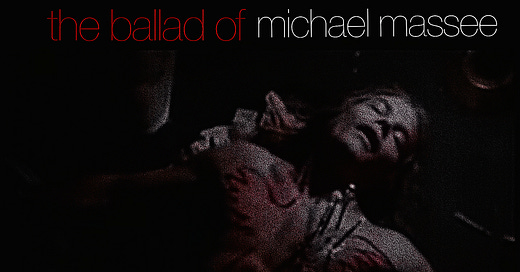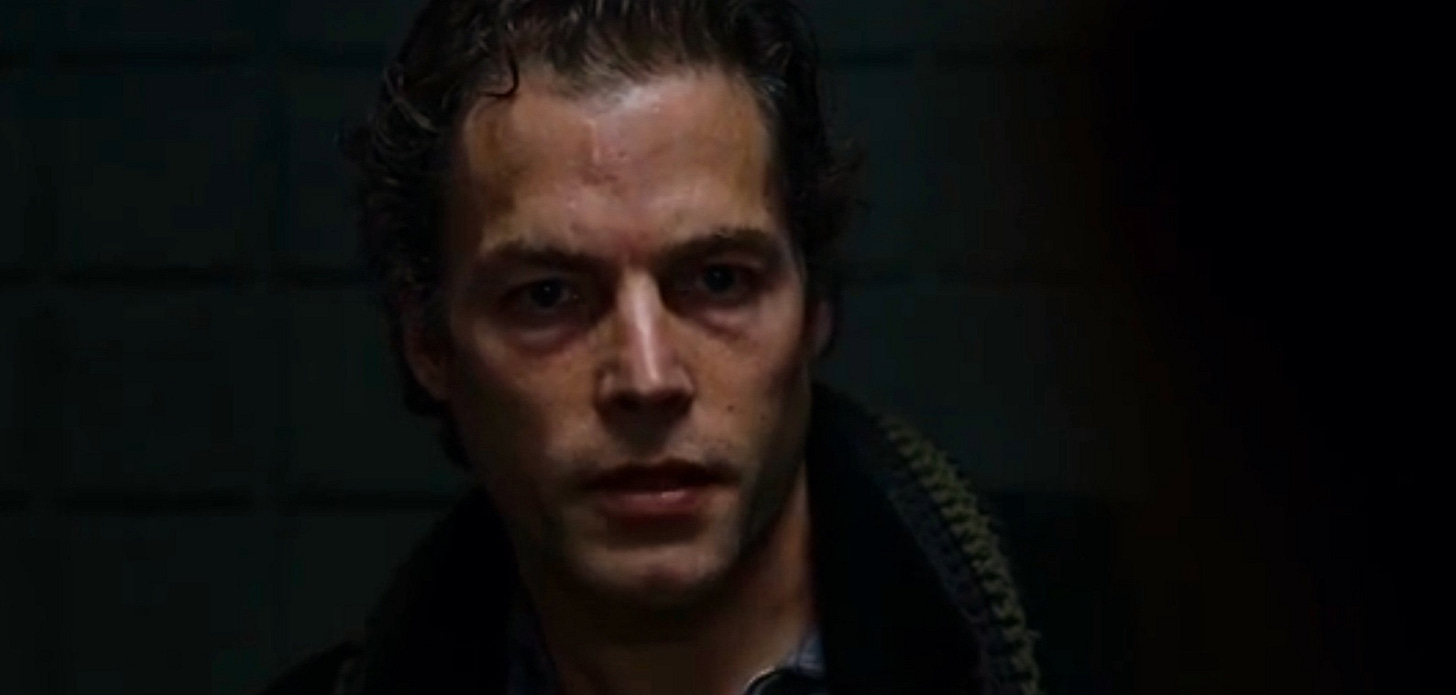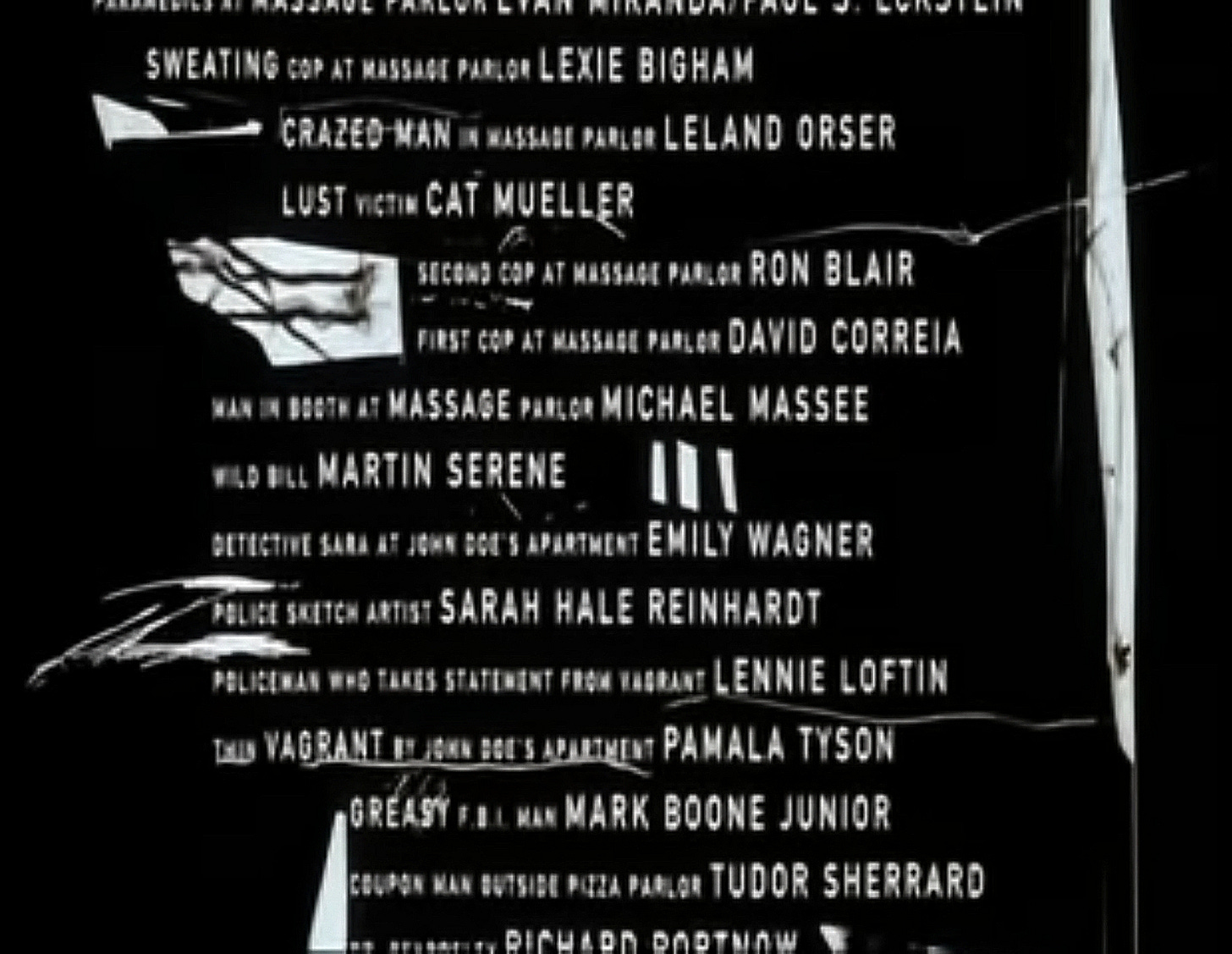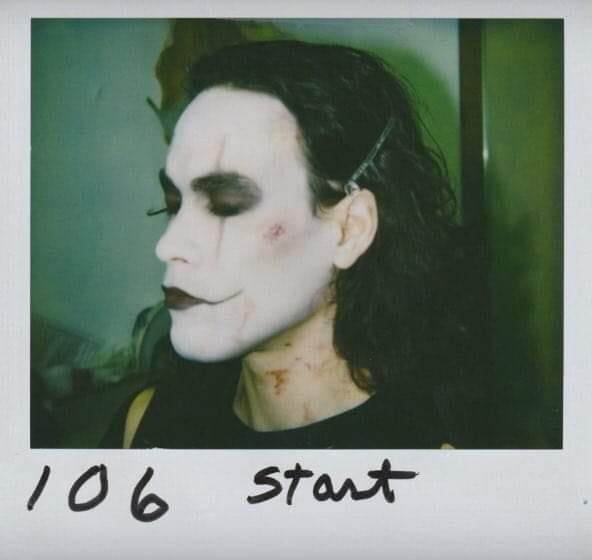When the movie Seven came out, I was riding high on my teenage goth horse.
I had my dark music, my black clothes, my black hair and my fucking horror movies. And I saw them all. On VHS too, and that shit wasn’t easy back when you had to track down physical copies of shit in the desert landscape of smalltown pre-internet boom America. But it was fun. And occasionally you chanced upon some rad shit, like when I found The Texas Chainsaw Massacre on VHS in a little book and music store. I snapped that bitch up and me and my buddy watched the fuck out of that bad girl while getting high and rehearsing our stillborn punk band.
Gore and music was all I lived for.
So hearing the soundtrack for Seven, with the awesome Gravity Kills track ‘Guilty’ and the cavity worthy ear candy (Precursor) mix of NIN’s ‘Closer’ at the beginning of the film, I knew I needed to watch this movie. And with the disgusting imagery, mind-bending storyline and Morgan Freeman and Brad Pitt supplying an awesome, alternate 1985 rendition of Lethal Weapon’s Murtaugh and Riggs, it thrilled me from start to credits. But one actor in particular stood out.
“I know that dude,” I said to my teenage self, watching the film fresh off the New Release wall at Wax Works, the now defunct VHS rental mecca of my youth. My room was dark, lit only by the television (a little square Magnavox you wouldn’t be caught dead watching nowadays) and the cherry of my perennial cigarette. The dude in question was none other than Top Dollar’s main assassin, Funboy.
I was alone. And there was no one to share this tidbit with. It was l996 and back then when you were alone, you were fucking-a alone. No messaging a buddy about the neat movie trivia you’ve just happened upon. No post-bragging your newfound filmographic wisdom onto some social media platform page and waiting for the positive reacts to roll in. Back then you made your discovery and unless you felt like walking to the phone which hung on a nail in the wall in the hall, you just hoped you’d remember the info until the next time you happened upon another human.
But there was no doubt about it. That was him.
I’d just watched a scene where a dude is being interrogated after fucking some chick to death with a knife strap-on.
So that was weird. Then seeing the face of the other man in the adjacent interrogation room, being questioned by Pitt, connected this movie to my teenage favorite film, The Crow. There were already multiple links: the dark cinematography, the goth music, the violence. And now there was this dude. I decided to see what his name was when the credits rolled. I’d never bothered to look when watching The Crow. It seemed like he wasn’t a real person outside of film when watching The Crow, but more of an actual character who only existed in the movie. Until now, he was just Funboy. But actually –
The credits rolled. Backwards. In a weird ass font. To David Bowie’s ‘The Heart’s Filthy Lesson’.
There it was.
He was a real person.
An actor. Someone who did this professionally to make a living. Funboy was just a character he played. A depiction of a comic book villain created by James O’barr and turned into an action film by director Alex Proyas. It was a portrayal that Massee himself would never watch. And as great as The Crow is, I understand why Massee wouldn’t want to see it. Who would want to sit and view any movie knowing that, because of this film, you now had to live with being forever known as the person who accidentally shot Bruce Lee’s son to death?
Three times was not the charm.
The Crow was Michael Massee’s third film credit and would haunt him until his death at age 64 from stomach cancer. I can’t help but wonder if the anxiety that such a traumatic event induced on the actor did not in some way manifest the disease.
Although he was born in Kansas City, Missouri, Massee had a very foreign look.
Being raised in France may have contributed to his Western European aura. His defined, taut build in The Crow is reminiscent of soccer stars from that region and also of Iggy Pop, who was initially given the role of Funboy. Iggy couldn’t do the film, however, because of the tour for his American Caesar album. Although not my favorite offering from Iggy, it’s a safe bet that it’s one of Iggy’s. Imagine an alternate world where Iggy did not write the album and was not touring and took the part. Then we’d have a scenario where Iggy Pop shot and killed Brandon Lee, which is even more unthinkable than the reality of the situation. And if you’re into that kind of What If? comic book shit, put River Phoenix or Christian Slater in the mix of possibilities, both of whom turned down the role of Eric Draven. Or add Johnny Depp, specifically requested to be Draven by the creator of The Crow himself.
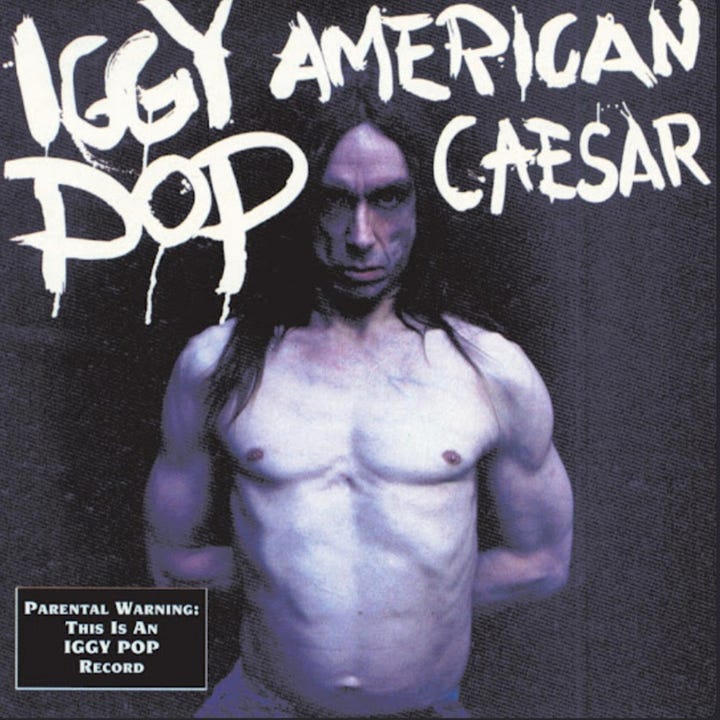
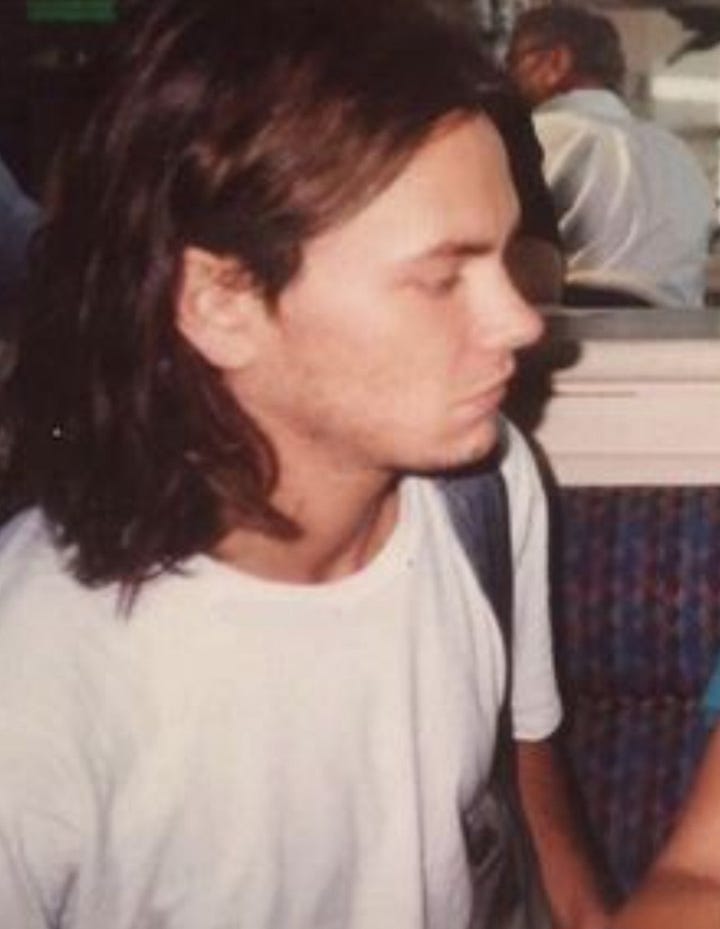
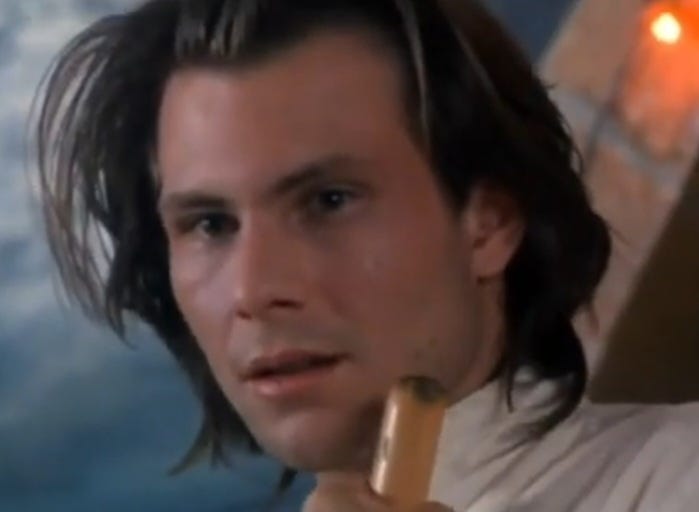
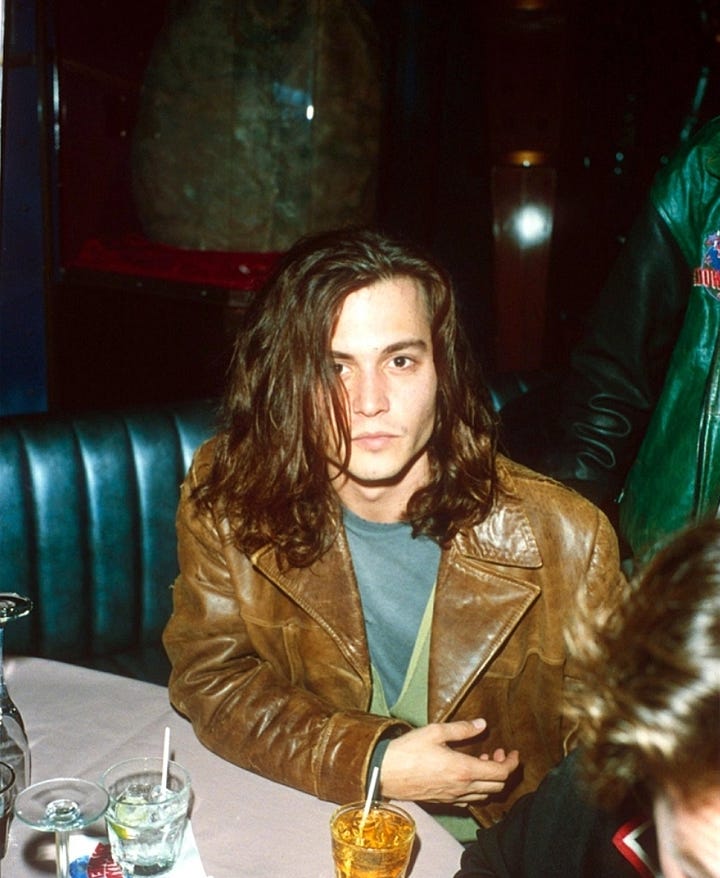
So weird to imagine the different scenarios.
Painful regardless because Brandon Lee was on his way to becoming one of the biggest stars on the planet. Although his dad is listed as having been around 5’8” and his mother is 5’7”, Brandon Lee stood at 6’. He’d already starred in decent action flicks like Showdown in Little Tokyo and Rapid Fire holding his own alongside good actors like Drago-Dolph Lundgren and Jim Jones himself, Powers Boothe. Brandon had just turned 28 on the set of The Crow. He was still young, had a smile that stretched for days and looked at home in a suit and tie or eased back on a Harley. And his physique rivaled his father’s, none other than the legend Bruce Lee. That’s the other thing about Brandon and The Crow’s mystique. Here you have this California dude who is dashingly handsome with his half-Asian dark eyes and hair and perfectly hued skin tone who just happens to be the son of the world’s most renowned mixed martial artist. And then he’s starring in a goth masterpiece that all but allocates a part of him for the masses like a deck of cards. Pick any, you’ll get a different facet of Brandon, accepted by all. If only he’d lived, social media and the thriving UFC scene would’ve kowtowed to him with his diverse background and charisma. I bring all that up only to hammer home how devastating it was to be the guy on the other end of the gun that killed him. All because of a dummy bullet cap that somehow got stuck in the firearm during a previous discharge and just happened to break free on set on March 30, 1993 and strike Brandon, ending all that could have been, leaving poor Massee standing there holding the gun for the rest of his days.
Go into any mall and where there’s a Hot Topic, you’ll find Brandon.
Go anywhere where there’s martial arts, you’ll find his father. They’re everywhere, two legends who must have haunted Massee anytime he saw them. Even in interviews you could see it all over his face. The pain and guilt resulting from something that was not his fault. It was not Michael who fucked up the prop gun. It wasn’t him who changed the script that day from Eric Draven being stabbed to Eric being shot. James O’barr suffered tragedy and steeled himself against the pain as much as possible with art. That art got turned into a movie. Iggy Pop recorded an album and off on tour he went and couldn’t take a role (he’d later appear in The Crow: City of Angels as Curve). Michael took the role, took the gun, took direction from Alex Proyas, and accidentally took a life.
Even in the movie Seven you could still see it in his eyes.
Massee’s haunted face seems to wonder out loud, “Are they thinking it? Are they thinking about when I shot Brandon?” Even before that, as Newton the cop in Tales From the Hood, you can see the ghost of regret in his pores. Only in the movie Lost Highway does he almost look composed and normal. But then again, that’s a David Lynch film full of social anomalies such as Robert Blake (accused of murdering his wife) and Marilyn Manson (accused of everything Satanic), so he probably didn’t feel too out of place on the set.
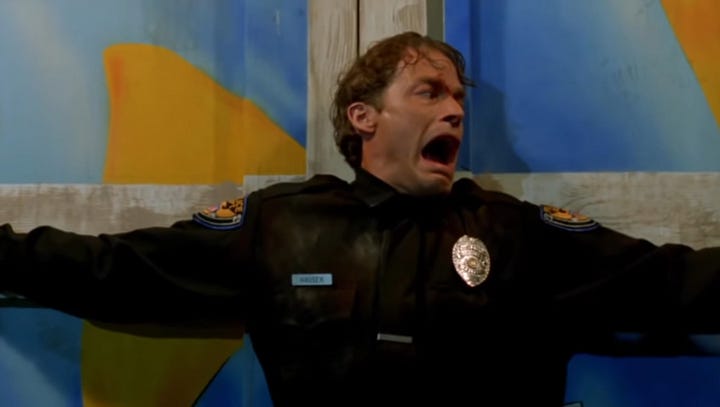
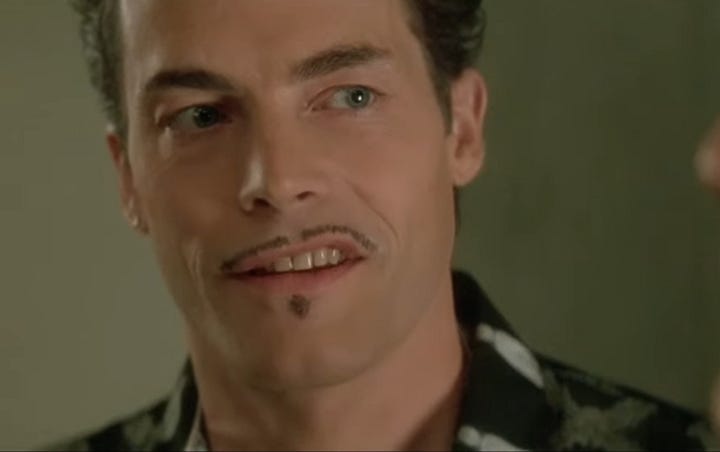
When he died on October 20, 2016, the twenty-three years separating him from the day he shot Brandon Lee offered not even a sliver of buffer.
The articles and posts surrounding his death only mentioned that he accidentally killed Brandon Lee. That was his legacy. And he must have known that on the set, the instant that the cast and crew realized that Brandon was not acting. That Bruce Lee’s son, the next big actor to take over Hollywood, was really dead and the person who did it, through no negligence of his own, now carried the weight of being the killer. It’d be no picnic for Massee if he was still alive today. In the aftermath of the Rust shooting that ended director Halyna Hutchins’ life, you can only surmise that the media would have deluged Massee for comments, comparisons to Alec Baldwin erupting following the October 21st, 2021 mishap. Massee had a wife and two kids and there’s no telling the torment and scrutiny that besiege them anytime there is an accident on a film set.
Michael Massee was a respected actor with a unique enough look to find plenty of work. But it’s often not just the work people of ambition seek. Or even legacy. It’s wanting to be known in the moment for something that’s a little better than good. And nothing could be worse than being so close to that and having it all besmirched at no fault of your own in such horrific and public fashion. The weight to give up and leave his acting career behind must have been tremendous.
Let's say you're a musician.
Imagine you're given a guitar onstage. You do not know that it is a cursed instrument. You strum it and the lead singer falls over dead. Would you have the courage to play ever again? Would you still love music? Would you have the strength to get a new band together?
Michael Massee had and did. He played through the pain, searching for notes of self-forgiveness. There's a lot of people in his band. You may know some of the members or you may be one yourself. A supergroup strumming through the days, trying to live down these harsh ballads of mistakes in a world that prides itself on its precise aural recall.
